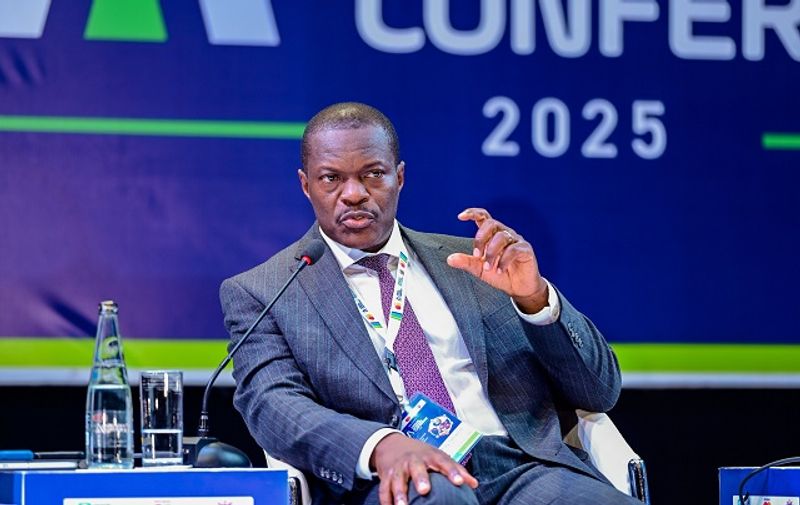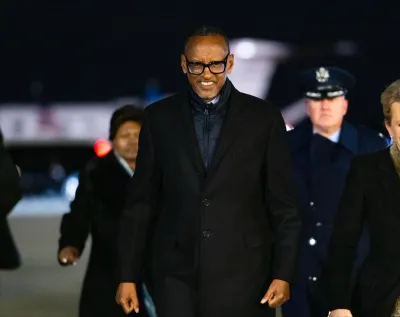
Diamond Trust Bank (DTB) Uganda has unveiled a strategic pivot towards the fast-growing remittance corridors connecting Uganda with the United Arab Emirates (UAE) and Asia, as traditional inflow sources from Europe and North America begin to plateau.
Speaking at the Annual Bankers’ Conference held at the Serena Hotel in Kampala, DTB Uganda Chief Executive Officer Godfrey Sebaana emphasized that the bank’s evolving remittance strategy is a direct response to shifting diaspora trends.
“For a long time, Europe and the U.S. have dominated Uganda’s remittance inflows. But we’re now seeing a significant surge in transactions from the Gulf and parts of Asia,” Sebaana said. “These markets are becoming critical lifelines for many Ugandan households.”
According to Sebaana, the surge is largely driven by the increasing number of Ugandans migrating for employment opportunities in the Middle East and Asian countries. However, he noted that many of these new diaspora workers face financial vulnerability due to a lack of planning tools and secure transfer mechanisms.
“Unfortunately, many Ugandans in these regions lack basic financial guidance and risk falling prey to fraudulent schemes or poor investment choices,” he warned.
To tackle these challenges, DTB has ramped up its remittance services, leveraging partnerships with global transfer giants such as Western Union, MoneyGram, and TerraPay, and expanding integration with mobile money platforms to ensure safe, convenient transfers.
The bank is currently processing nearly 800,000 remittance transactions annually, giving it a strategic vantage point to respond to emerging diaspora needs.
Sebaana stressed that the purpose of remittances is rapidly evolving beyond immediate consumption.
“Today’s diaspora is looking for value. They want reliable investment opportunities back home—assets that will grow and secure their families’ futures,” he said.
Among DTB’s new offerings are simplified access to government securities, including Treasury bills and bonds, long perceived as complex or exclusive. These investment tools, he explained, offer stable returns and are anchored in Uganda’s relatively stable currency and low inflation environment.
Additionally, DTB is exploring alternative credit scoring models using remittance data, allowing diaspora clients to access business and mortgage loans without the need for traditional collateral.
Despite the progress, Sebaana acknowledged persistent challenges: financial fraud, lack of credible investment advice, and gaps in diaspora financial literacy.
To bridge this gap, DTB has launched virtual financial clinics and educational webinars targeting high-volume corridors like the UAE and Asia. The aim is to empower migrant workers with knowledge and secure access to banking services.
However, Sebaana insisted that banks cannot do it alone. He called on the government to play a greater role in securing the remittance ecosystem, particularly in cybersecurity and regulatory enforcement.
“Digital trust is not optional. We urge government bodies to invest in cybercrime prevention and ensure tighter oversight over cross-border financial flows,” he stated.
Moses Muguwa, Commissioner at the Ministry of Finance, Planning and Economic Development, echoed Sebaana’s sentiments, pledging government support through commercial diplomacy and forward-looking regulation.
“We are working closely with destination countries and global institutions like the OECD, UN, and World Bank to create a seamless remittance environment,” Muguwa said.
He cited stablecoins and blockchain-based assets as potential game-changers that could reduce remittance costs from current rates of 10–20% to as little as one cent per dollar, provided they are well-regulated.
Muguwa also proposed the creation of a Diaspora Investment Trust, a transparent platform through which migrant workers can invest securely in Uganda’s economy.
Adding to the conversation, Masoud Obeid, chairperson of the Uganda Forex and Remittance Association (UFRA), emphasised the need for support to money transfer operators and forex bureaus, which he described as “critical intermediaries.”
“Forex bureaus are on the frontlines of these remittances, but we are under immense pressure,” Obeid said, citing rising compliance costs, liquidity issues, and limited technological infrastructure.
He called for access to the NIRA database to improve Know Your Customer (KYC) verification and reduce fraud risks. Additionally, he urged for a joint public awareness campaign to boost financial literacy among remittance recipients.
With Uganda receiving over $1 billion in remittances annually, the sector has become a major pillar of household income and national development. DTB’s renewed focus on the UAE and Asia corridors signals a deeper commitment to building an inclusive, secure, and future-ready financial ecosystem.
“Remittances are not just about sending money. They’re about building futures,” Sebaana said














Aldrige Kennedy
Leave a Comment
Your email address will not be published.